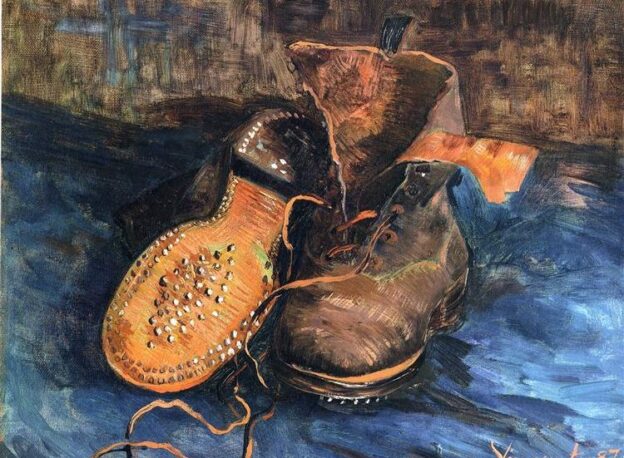Note from the Editor: This week at Wesleyan Accent, as we scan, with grief, ongoing news from seeker-sensitive Protestant megachurches and Roman Catholic dioceses, we are reaching into our treasure trove of archives to reexamine different aspects of leadership. Our contributors over the years have written thoughtful, challenging reflections on leadership from a variety of perspectives.
Are American clergy suffering a crisis of faith?
From megachurch pastor and quintessential church cool guy Rob Bell to Seventh-Day Adventist pastor-turned-atheist-for-a-year Ryan Bell, 2014 was a doozy (the topic even emerged as a central theme in Steven King’s new novel Revival).
From Rob Bell: “All of these things that people think dropped out of the sky by divine edict are actually a reflection of ongoing human evolution and a thousand other factors that have shaped why we as humans have done what we’ve done.”
From Ryan Bell: “I do think I’ve now seen both sides of the coin. Being with the atheists, they can have the same sort of obnoxious certainty that some Christians have, and I don’t want to be a part of that. It feels like I’m stuck in the middle. I want to be for something good, but I don’t want boundaries, and religion just feels like a very bounded thing. The question I am asking right now: Why do I need religion to love?”
But I don’t just have to look at the headlines about Rob Bell’s seismic theological shift (he learned the most about Jesus from…Oprah? She’s great if you want to know if you’re wearing the correct bra size, but – Oprah?) or about Ryan Bell’s wrestling with the problem of evil and whether God exists (I completely applaud him for being honest about his struggles and for stepping out of the pulpit if his beliefs were in flux that deeply).
No, I don’t have to read stories like this one or this one to wonder if these North American clergy suffering crises in faith and theology are part of a greater trend. I have too many friends who are going through a similar process to wonder if it is, as my Facebook feed daily demonstrates.
It’s a mistake to think that clergy suffering crises of faith are something new under the sun, though. If Mother Teresa recorded her struggles and doubts, I think we can all breathe a sigh of relief.
It’s also a mistake to criticize questioning by and in itself. Buddy, you better. An unexamined life is not worth living, and an unexamined faith will last about as long as Farrah Fawcett hair, Hammer pants, beanie babies, MySpace, “Gangnam Style” and every other grass that withers and flower that doth fade away. Or as I occasionally put it to my congregants from the pulpit: “I really believe this. Otherwise I wouldn’t waste your time. Join the Rotary if you just want to be a good citizen.”
Why here, though? Why now, and why so many?
Orthodoxy itself is not bankrupt. In fact, if you feel disillusioned with the church or faith (though people rarely actually say they’re disillusioned with Christianity itself, which is why you don’t hear, “you know, the Apostle’s Creed really disappointed me today”), reading G.K. Chesterton’s Orthodoxy might be just what the doctor ordered, a breath of fresh air that anticipated with remarkable acumen what the intellectual challenges of the next century would be. No, orthodoxy is not bankrupt even if modernism is. As many clergy or church-bred people I know who are slowly, gradually breaking up with the church, I know nearly as many drawn not just to orthodoxy but to an additional packet of dogma as well, eschewing North American Protestantism for the Roman Catholic and Eastern Orthodox traditions.
If there is this crisis of faith among North American clergy, then, why here? Why now? And why so many?
Here are a couple of factors that I suspect are shaping this trend.
The fault lines in fundamentalism have taken their toll. What a heartbreaking process to read (former Seventh Day Adventist pastor) Ryan Bell’s intellectual turmoil. Fundamentalism is all baby, no bathwater, as the LA Times piece recounts: “All along, his doubts grew. The more he tried to reconcile the Bible with science, the more it seemed he was putting together a puzzle with parts that didn’t fit. The more he thought about the unceasing suffering in the world, the more he doubted God’s existence.”
If your faith falls apart when you pull on the string of literal, six-day creation theory, you probably grew up a fundamentalist. There are good, loving, generous Christian fundamentalists who are the salt of the earth. But if your faith – the whole of your faith – could be shaken by the discovery of millions of iconic, undisputed, beautiful “missing links,” then your faith wasn’t in the Creator God whose mysterious ways caused all life; it was in one narrow interpretation of a complex language. This intellectual legalism has churned out more atheists and universalists than even Ricky Gervais could ever hope for.
What happens when you go through college and seminary without working through these theological issues? You work through them after you’ve joined the ranks of other clergy, after your own faith gets hit with challenges while you’re also trying to serve in ministry. American clergy are in part suffering a crisis of faith because we’re still recovering from a wicked hangover left by the well-intentioned fundamentalists of the 80’s, committed to coalitioning everyone to heaven.
The fatigue of the faithful has taken its toll. Show me a pastor who is struggling with theology or philosophy of religion and I’ll show you a pastor who’s also very likely burned out. Clergy see the best and the worst. Consider this statement from a Huffington Post piece on former megachurch pastor-now-Oprah-network-show host Rob Bell:
Now resettled near Los Angeles, the couple no longer belongs to a traditional church. ‘We have a little tribe of friends,’ Bell said. ‘We have a group that we are journeying with. There’s no building. We’re churching all the time. It’s more of a verb for us. Churches can be places that help people grow and help people connect with others and help people connect with the great issues of our day,’ Bell said. ‘They can also be toxic, black holes of despair.’
Competition from colleagues, church members fixated on petty, ego-driven concerns – these realities can knock the wind out of a beautiful baptism, a tender, hard-fought reconciliation, or a quiet “thank you” after a sermon. It’s not always the moments when a church can be a “toxic, black hole of despair” that send clergy into a theological tailspin. Sometimes it’s what they’re also dealing with themselves: grief, loss, depression, mental illness or addiction.
In At Home in Mitford, writer Jan Karon hits the nail on the head in this fictional letter from a bishop to his clergy friend:
You ask if I have ever faced such a thing as you are currently facing. My friend, exhaustion and fatigue are a committed priest’s steady companions, and there is no way around it. It is a problem of epidemic proportions, and I ask you to trust that you aren’t alone.Sometimes, hidden away in a small parish as you are now – and as I certainly have been – one feels that the things which press in are pointed directly at one’s self. I assure you this is not the case.An old friend who was a pastor in Atlanta said this: “I did not have a crisis of faith, but of emotion and energy. It’s almost impossible for leaders of a congregation to accept that their pastor needs pastoring. I became beat up, burned out, angry, and depressed.”The tone of your letter does not indicate depression or anger, thanks be to God. But I’m concerned with you for what might follow if this goes unattended. Keep a journal and let off some steam. If that doesn’t fit with your affinities, find yourself a godly counselor. I exhort you to do the monitoring you so sorely need, and hang in there. Give it a year!
Any pastor “worth their weight” willingly exposes himself or herself to extraordinary amounts of pain. Even those who attempt to engage in “self-care” frequently short themselves or fear criticism from colleagues and supervisors. Does your denomination offer sabbaticals?
What percentage of your pastors actually take the offered sabbaticals? Do you communicate expectations to your staff that they will not only take their days off but their vacation days as well? Do you make sabbaticals mandatory? Do you admire a colleague’s “work ethic” and then raise an eyebrow when he has an affair? Do you demand 60 hours a week for a salaried position and then make judgments on your employee’s health and fitness level? Do you give compassionate leave to those in your district or conference who lose a parent, or do you send them carefully worded correspondence reminding them that their church is behind on apportionments, budget, or whatever your denomination calls the money a local congregation sends to its hierarchy?
Dear pastors, superintendents, bishops: remember the Sabbath. Keep it holy. Rest your way back into faith.
For clergy suffering through the epidemic of faith crises that seems as miserable, unwelcome and persistent as this year’s flu strain, what palliatives might be offered? Plenty of rest (see above), but also these comforts:
Good-enough pastoring. When I became a new parent, I was panicked, constantly waking the baby by checking on him. Then I read just a short review of a book with a title that, in itself, calmed me down. The book? Good Enough Parenting. Thank you, sensible reviewer, who, having had enough of the neurotic 21st century moms and dads who overparent so lovingly, gently suggested that perhaps parents need to relax a little and simply aim their expectations at “good enough.”
Dear clergy slogging through a crisis of faith: I know you are pressured on all sides to be intuitively genius at social networking; to have the preaching abilities of your congregation’s favorite pastor from 20 years ago; to have the evangelistic zeal of Billy Graham; the charismatic charm of Jimmy Fallon; the generational with-it-ness to know who Jimmy Fallon is; the biblical knowledge of a cloistered New Testament scholar; the entrepreneurial spirit of Elon Musk; the organizational abilities of Martha Stewart; the leadership abilities of whatever current “best practices” guru is popular; the financial soundness of Dave Ramsey himself; the parenting insight of Super Nanny; the technological and fundraising prowess of the 2008 Obama campaign and the humility of Mother Teresa.
Oh. And the holiness of our Messiah.
Let’s prevent a few existential crises by saying, here and now, that the Body of Christ in North America might better be served simply by pastors who are “good enough.” You may never have a multiple-book publishing deal, but you never got sent to federal prison, either. You weren’t ever a keynote speaker, but you also avoided major public meltdowns. In our quest to give God our best, maybe it also would have been valuable to give God quiet, almost invisible consistency.
Philosophy matters. Some of the most pastorally gifted people I know, who seem to intuit the pastoral needs of those in their care, are extremely well grounded in philosophy. I’ll never forget what a seminary friend once said to our philosophy of religion professor. After a tragic loss while she was young, she was left with enormous life questions that threatened to engulf her. In all her questioning, it wasn’t counseling classes or time with therapists that ultimately gave her peace: it was the content of an introduction to philosophy of religion class, where questions like “why would a good, all-powerful God allow suffering?” were dissected with compassionate logic and reason rather than answered with a quick-fix Bible verse or a prod to rehearse the blank abyss of her own sorrow on the therapist’s couch.
The best response to bad theology isn’t an absence of theology: it’s good theology.
And the best response to deep philosophical questions isn’t to throw away faith, but to acknowledge that faith and reason complement each other, and that any version of Christian faith that rejects intellectual and philosophical questioning – or claims – is a version of the Christian faith that is cheating you.
And dear friend, you deserve more.
Let’s eavesdrop on G.K. Chesterton in closing:
Because children have abounding vitality, because they are in spirit fierce and free, therefore they want things repeated and unchanged. They always say, “Do it again”; and the grown-up person does it again until he is nearly dead. For grown-up people are not strong enough to exult in monotony. But perhaps God is strong enough to exult in monotony. It is possible that God says every morning, “Do it again” to the sun; and every evening, “Do it again” to the moon. It may not be automatic necessity that makes all daisies alike; it may be that God makes every daisy separately, but has never got tired of making them. It may be that He has the eternal appetite of infancy; for we have sinned and grown old, and our Father is younger than we.
Oh God, take our cynicism and hand us back our wonder…
A reading list for the underwhelmed, overmarketed and disillusioned:
Orthodoxy by G.K. Chesterton (non-fiction)
At Home in Mitford by Jan Karon (fiction)
Heaven, Hell and Purgatory by Jerry Walls (non-fiction)
Harry Potter books 1-7 by J.K. Rowling (fiction)
Good God: The Theistic Foundations of Morality by David Baggett and Jerry Walls (non-fiction)











